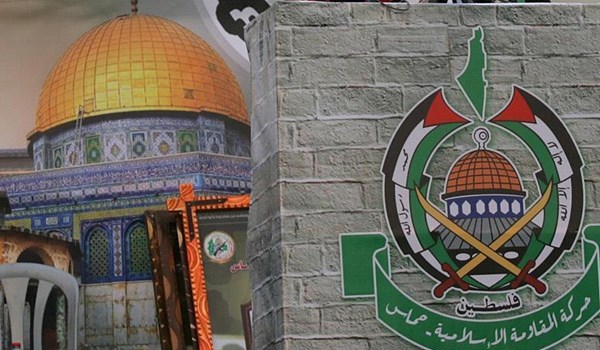
RNA - The two movements agreed Thursday to “enable the national unity government to carry out its work and assume its full responsibility in running the Gaza Strip, as is the case in the West Bank, by December 1, 2017,” said a statement released by the State Information Service of Egypt.
Earlier in the day, the Gaza-based Palestinian resistance movement, Hamas, and the West Bank-based Palestinian Fatah party, led by PA President Mahmoud Abbas, signed a reconciliation accord.
The landmark deal, described by Abbas as the “final agreement to end the division, “was signed by Hamas' new deputy leader, Salah al-Aruri, and Azzam al-Ahmad, the head of the Fatah delegation for the talks, after three days of unity negotiations, which were kicked off on Tuesday.
According to the accord, Fatah will lift an array of punitive sanctions that it imposed on Hamas earlier this year. In return, Hamas will join the PA to form a unity government, which will exert its full control over the blockaded coastal sliver from the beginning of December.
The deal also requires some 3,000 members of the PA’s police force to be redeployed to Gaza, an unnamed member of the negotiating team told the AFP. Another party to the talks, speaking on condition of anonymity, said that the accord would also see the unity government’s forces take control of Gaza’s borders, including the Rafah Border Crossing, a key gateway to Egypt.
Some serious hurdles, however, remained unsettled in the agreement, including the status of the Hamas military wing, known as the Ezzedine al-Qassam Brigades, and its estimated 25,000 fighters, who have defended Gaza against three deadly Israeli wars over the past decade. Hamas had already said that the force was non-negotiable.
Fatah and Hamas have been at odds ever since the latter scored a landslide victory in Palestinian parliamentary elections in 2006. Since 2007, Hamas has been governing Gaza while Fatah has been based in the autonomous parts of the Israeli-occupied West Bank. The two rival Palestinian factions finally agreed on a unity government in April 2014, but it fell apart months later.
Last month, however, Hamas announced that it had accepted key reconciliation conditions offered by Abbas and underlined its “desire to achieve national unity.”
The resistance movement also invited the Palestinian unity government to return to Gaza, dissolving an administrative committee that runs the Israeli-besieged territory as a step towards fresh national elections in Gaza and the West Bank.
Hamas chief Ismail Haniyeh also expressed his satisfaction with a potential Palestinian rapprochement, saying, “There might be some difficulties on the road, but we will conclude reconciliation, regardless of the cost.”
A top Fatah official, speaking on condition of anonymity, also announced that Abbas would visit the Gaza Strip for the first time in a decade later this month.
There will be another meeting in Cairo, due to be held on November 21, with various Palestinian political movements invited.
The Fatah-Hamas reconciliation efforts have enraged Israeli Prime Minister Benjamin Netanyahu, who stressed that the regime would not accept "imaginary appeasement where the Palestinian side is reconciling at the expense of our existence.”
The Israeli premier has already said that he would put his stamp on reconciliation only if Hamas recognizes Israel, disbands its military wing and cuts ties with Iran.
847/940